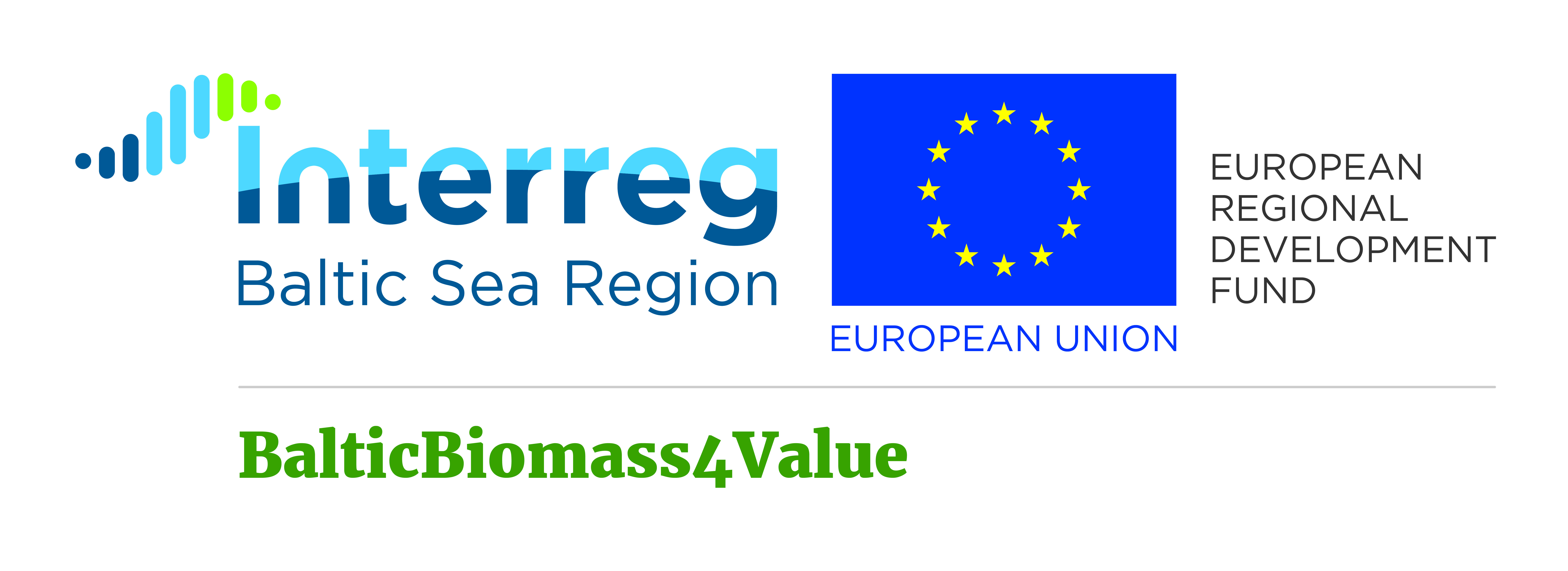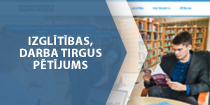
Bioenergy remains a central element in the renewable energy mix policies in Europe. Nevertheless, the extensive use of biomass for energy raises a number of sustainability risks and economic viability questions. These concerns include potential harmful impacts of bioenergy expansion on the environment, in particular on biodiversity and ecosystems, air emissions, soil fertility and water.
Other major concerns include inefficient uses of biomass for energy, neglecting potentially higher value-added non-energy uses of biomass, and disregard for opportunities to extend circularity in bio-based production.
Therefore, the project aims to enhance capacity of public and private actors within the BSR to produce bioenergy in more environmentally sustainable and economically viable way, by utilizing new biomass sources (chiefly, biological waste) for energy production, as well as possibilities to use bioenergy side streams for high value bio-products.
Biomass from different sources (agriculture, food and feed industry, forestry, wood industry, municipal waste and sewage sludge, fishery, algae), its logistics, various biomass conversion technologies and value chains will be mapped to identify best practices of bioenergy generation and the potential of more efficient and sustainable deployment of biomass in the BSR. The additional biomass utilization in energy value chains will be explored, especially opportunities to use side streams for high value bio-products, such as food, feed, fertilizers, chemicals, cosmetics, and other uses. Similar bio-resources, but diverse technologies and business models in the BSR countries create solid background for cooperation.
To facilitate efficient and sustainable deployment of biomass that will be the most precious resource in the post-fossil fuel economy, the transnational partnership will develop good practice business models for bioenergy and integrated side bio-products production in the BSR. To enhance the capacity of public authorities, project partners will prepare guidelines on circular bioeconomy development support and will promote them through experience exchange and training activities across the region.
The partnership will also seek to improve knowledge and technology transfer services concerning efficient and sustainable bioenergy production, and to widespread good practice business models in the BSR by developing business consultation scheme and tools. Public authorities responsible for natural resources, energy security and promotion of industry within bioeconomy sectors, energy agencies, forestry and agricultural advisories, waste management agencies, as well as innovation and business development agencies, clusters and networks, business associations and enterprises will be using outputs of the project.
The partnership is also set out to increase awareness among regional development authorities, municipalities, and even local action groups about emerging opportunities in the bioenergy sector.
| Title |
Unlocking the Potential of Bio-based Value Chains in the Baltic Sea region
|
| Abbreviation |
BalticBiomass4Value |
| Lead partner |
Vytautas Magnus University (Lithuania) |
| Programme |
Interreg Baltic Sea Region 2014-2020 |
| Partners |
- Ministry of Energy of the Republic of Lithuania (Lithuania)
- Forest Owners Association of Lithuania (Lithuania)
- Lithuanian Biotechnology Association (Lithuania)
- Vidzeme Planning Region (Latvia)
- Latvia University of Life Sciences and Technologies (Latvia)
- Ministry of Rural Affairs of the Republic of Estonia (Estonia)
- Estonian Chamber of Agriculture and Commerce (Estonia)
- Estonian University of Life Sciences (Estonia)
- Agency for Renewable Resources (Germany)
- 3N Lower Saxony Network for Renewable Resources and Bioeconomy (Germany)
- State Agency for Agriculture, Environment and Rural Areas of Schleswig-Holstein (Germany)
- University of Warmia and Mazury in Olsztyn (Poland)
- Halmstad University (Sweden)
- Norwegian Institute of Bioeconomy Research (Nibio) (Norway)
- Norwegian University of Life Sciences (Norway)
- Municipal enterprise of the city of Pskov "Gorvodokanal" (Russia)
|
| Associated partners |
- Nordic Council of Ministers Office in Lithuania (Lithuania)
- Latvian High Added Value and Healthy Food Cluster (Latvia)
- Danish Technological Institute (Denmark)
- Norwegian Bioenergy Association (Nobio) (Norway)
- Fortum Oslo Heating Ltd. (Norway)
- State Committee of the Pskov Region for Economic Development and Investment Policy (Russia)
- Ministry of Agriculture of the Republic of Lithuania (Lithuania)
- Klaipėda University (Lithuania)
|
| Objectives |
To enhance the capacity of bioenergy development stakeholders to improve biomass value chains and utilize their business potential in the BSR;
To enhance the capacity of regional/ local public authorities and communities to establish effective support systems for the development of circular bioeconomy in countries of the BSR;
To enhance the capacity of circular bioeconomy innovation and business development actors to provide knowledge and technology transfer services and to widespread and initiate piloting of newly developed circular bioeconomy business models in the BSR.
|
| Activities |
- Identifying and assessing market opportunities, biomass potential, technologies and business models for circular bioeconomy development;
- Analysis of market outlook and future viability of different bioenergy products and value chains in the BSR energy system;
- Mapping of biomass value chains for improved sustainable energy use in the BSR;
- Preparation of good practice business models and example small and medium scale pilot business projects for sustainable bioenergy and side bio-products production in the BSR;
- Preparing guidelines for circular bioeconomy development support at local level and promoting them among public authorities;
- Analysis of regional/local support systems for circular bioeconomy development and preparation of good practice implementation guidelines for public authorities;
- Cross-border learning and promotion of good practice implementation guidelines for circular bioeconomy development at local level among public authorities;
- Improving circular bioeconomy innovation support services and initiating pilot business projects;
- Improving competences of existing knowledge and technology transfer service providers and organizing outreach activities to promote circular bioeconomy innovations in the BSR;
- Organization of consultations for potential pilot business projects in the BSR
|
| Results |
- Enhanced capacity of public authorities responsible for natural resources, energy security and promotion of industry and economy within bioeconomy sectors at national, regional and local level, national and regional energy agencies, forestry and agricultural advisories, waste management agencies, as well as innovation and business development agencies, clusters and networks, business associations and business enterprises interested in circular bioeconomy development projects to improve biomass value chains and utilize their business potential in the BSR.
- Good practice business models and example small and medium scale pilot business cases for sustainable bioenergy and integrated side bio-products production in the BSR will be prepared and discussed in each project country.
- Enhanced capacity of regional development authorities, municipalities, local action groups to establish effective support systems for the development of circular bioeconomy in countries of the BSR
- Good practice implementation guidelines and training program for regional / local public authorities on circular bioeconomy development and its support systems will be developed and introduced in each project country.
- Enhanced capacity of business enterprises to improve their business models or start new undertakings and to contribute to resource efficient green growth in the BSR.
- Enhanced capacity of knowledge and technology transfer of business associations, sectorial agencies, academic and research institutions.
|
Budget
|
Total budget – 2 792 643, 46 EUR
Vidzeme Planning Region – 200 175, 00 EUR
|
| Implementation period |
01.01.2019 - 30.09.2021 |
| Contact person |
Project manager Irīna Kulitāne
Phone: +371 29131859
e-mail: irina.kulitane@konso.lv
|
| Project webpage |
www.balticbiomass4value.eu
|





